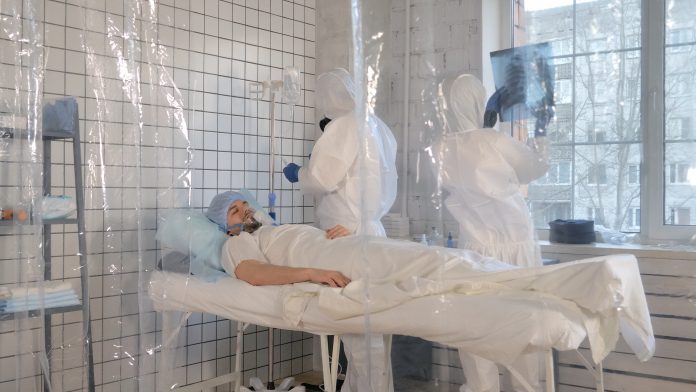Research suggests that current ICU protocols and ethical guidelines leave doctors exposed to legal liability if forced to make quick decisions in the event of a second COVID-19 spike
Around 2.5% of COVID-19 patients require mechanical ventilation. Concerns that the virus would see patient demand overwhelm ventilator supply prompted, researchers at the University of Cambridge investigated the legal limits of ventilator allocation.
They found “little concrete guidance” centrally in the UK and argue that shortages of medical supplies such as a lack of properly staffed ICU beds, dialysis machines or related equipment could see “postcode lotteries” of patient rights to life-saving treatment.
If these shortages lead to denial of treatment based on disability or age, or treatment withdrawal during sedation, it could violate patient rights and cause unlawful death.
Equalities Act
Dr Kathy Liddell, Director of the Cambridge Centre for Law, Medicine and Life Sciences said: “We’re definitely not out of the woods, with lockdown easing, we might well see a second COVID-19 spike in intensive care units, and health services should be prepared legally as well as medically.
“The law requires more of hospitals, doctors and clinical commissioning groups than is currently set out in the guidelines provided by the British Medical Association, the Intensive Care Society and medical ethicists.
“The legal rights of patients matter and they are not being given the attention they deserve. Denying treatment because of a disability, which includes chronic illness, violates the Equalities Act 2010. Denying treatment based on age may also do so.
“In fact, the Equalities Act requires efforts be taken not to disadvantage disabled people. This may mean giving people with disabilities longer assessment periods on ventilation, or actually not de-prioritising them.”
Withdrawing ventilation too early
The analysis points out that treatment must not be cut short for reallocation purposes until there is sufficient reliable evidence for predicting the patient’s outcome and any decision to withhold or remove ventilation must involve consultation with the patient or their family.
Withdrawing a ventilator without bringing the patient out of sedation risks unlawful killing and doctors could be directly liable under criminal law for charges such as gross negligence manslaughter, criminal battery or willful neglect.
Government liability
Legal liability could also extend to the UK Government. Co-author Dr Jeff Skopek, from Cambridge’s Faculty of Law highlights, the decision taken by the government in April 2020 not to provide a national policy on handling ICU shortages – despite recommendations from its Moral and Ethical Advisory group – could result in a violation of its obligations under Article 8 of the European Convention on Human Rights.
He said: “Without a national policy, the task of drawing up ICU rationing guidelines was left to individual CCGs and hospitals, and many lacked support to ensure their guidelines were legal and ethically sound.”
“If we end up with another surge in patients that overwhelms our critical care infrastructure, hospitals and doctors may end up acting unlawfully – and worse, patients may end up dying unlawfully.”
The study, published in the Journal of Medical Ethics, is based on UK law, but researchers say it is relevant to other European nations.




![Europe’s housing crisis: A fundamental social right under pressure Run-down appartment building in southeast Europe set before a moody evening sky. High dynamic range photo. Please see my related collections... [url=search/lightbox/7431206][img]http://i161.photobucket.com/albums/t218/dave9296/Lightbox_Vetta.jpg[/img][/url]](https://www.openaccessgovernment.org/wp-content/uploads/2025/04/iStock-108309610-218x150.jpg)






